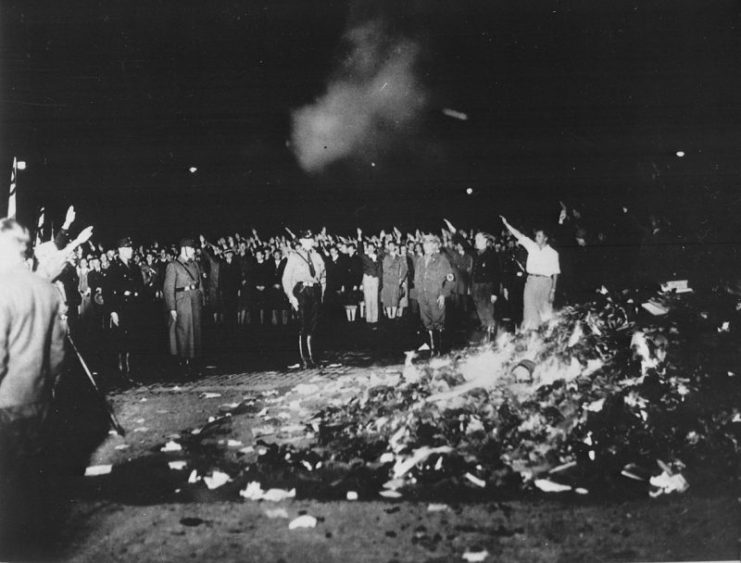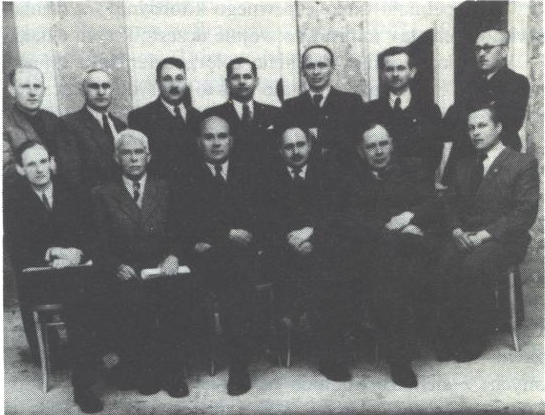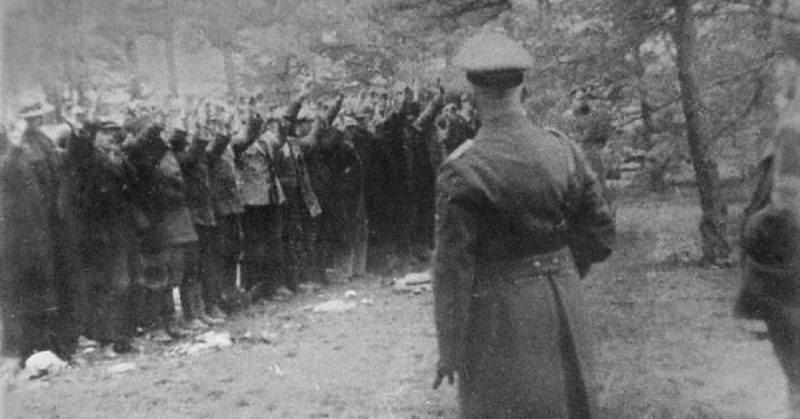When Winston Churchill was asked to cut arts funding to support the war effort, he famously replied:
“Then what are we fighting for?”
Those words were taken seriously by the men and women who participated in the underground education effort in occupied Poland during WWII. The Secret Teaching Organization (abbreviated in Polish to TON), was founded in 1939. As German tanks rolled into Warsaw and the Soviets occupied the eastern part of Poland – as agreed by the protocol of the Molotov-Ribbentrop Pact – it began.
Both countries sought to undermine Polish culture by limiting its educational policy and replacing it with their own regime. As the USSR occupied only parts of Poland between 1939 and 1941, the reforms on the school system were never fully implemented. However many intellectuals who were in the east of the country or took refuge there following the German invasion were purged or sent to Gulags in Siberia.
The Soviet occupational zone also collectivized private property, suppressed religious institutions and waged war on any former government official, as they intended to vilify the pre-war republic as much as possible. The Polish language was also targeted and actively suppressed from publications, schools, and universities. Polish schools were closed and those that remained operational had their curriculum significantly altered.

In the German occupied zone, the policy that was implemented made it clear that their goal was to enslave the local population by rendering them to nothing more than illiterate servants of the self-proclaimed master race. In a directive signed by Heinrich Himmler, the intention of the Nazis, concerning Poland and other occupied territories to the east were as follows:
“For the non-German population of the East, there can be no type of school above the four-grade rudimentary school. The job of these schools should be confined to the teaching of counting (no higher than up to 500), the writing of one’s name, and the teaching that God’s commandment means obedience to the Germans, honesty, industry, and politeness. Reading I do not consider essential.”
Newspapers were banned, books censored, publishing houses shut down. The film industry was reduced to pornography and deliberately badly-written scripts. Goebbels wanted to ensure that the Poles were presented as a cultureless nation that indulged only in the lowest of instincts in their perception of art.
Schools were reduced to promoting craftsmanship, as the Nazis wanted to create future generations of a workforce capable only for physical work approved by the Reich. Although this collective undermining of education and culture was undertaken on a large-scale, it proved to be futile. The Polish Underground State, the official representative of the Polish Government in Exile, was conducting numerous hidden lectures to defend its culture, art, and language.
Although the concept achieved its full potential during WWII, it had been conceived almost half a century earlier. In the period between 1895 and 1905, Poland was not a sovereign state, but part of both Prussia and the Russian Empire. At that time, to preserve the Polish traditional scholarship, an organization called the Flying University was perceived as necessary to resist the effects of Germanization and Russification.
Throughout the war, however, more than 1.5 million people went through the process of unofficial education organized by the resistance, which precedes by far the number of students of the Flying University.
Norman Davies, a British-Polish historian and an expert on the subject, has estimated that by 1944 around 100,000 students were attending clandestine secondary school lectures. 10,000 young men and women were enrolled in the secret university program and obtained their masters degrees while several hundred students even managed to finish their doctorates.

The scale of this education network was simply unbelievable. In Warsaw, Krakow, Lodz, and Wilno (today’s Vilnius), numerous lectures, seminars, and exams were held in secrecy. Faculties of all kinds, ranging from Law School to Mathematics and Biology were organized all over Poland which strongly resisted the occupation and subsequent annexation of their country.
Polish teachers and professors were constantly targeted by occupational forces, and many perished during the war as they were often executed or sent to death camps. Being a teacher in the Secret Teaching Organization was punishable by death, and it took great courage and defiance to be involved in such actions.
While the Polish Resistance Military Wing was fighting for freedom from the invaders, those partaking in the education project of the Polish Underground State were fighting for the future of their nation.
The Germans were incapable of preventing the lectures, as they were too busy fighting the armed insurrection. As Czesław Madajczyk noted in his book, Politics of the Third Reich in Occupied Poland, the Nazis could not muster enough manpower to control the educational program of the underground, even though, by 1943, they had become completely aware of the scale of the network.
As the Eastern Front was moving westwards day by day, the Germans had bigger issues to deal with. As the war progressed, the Secret Teaching Organization was simultaneously filling its ranks and clandestine classrooms all over the country.
The organization was the motor behind the resistance for they had given the Polish people the hope they needed in those dire times. The hope that one day the occupation would end and that the cadre formed in secrecy would become the future leadership of an independent country.
This hope was nearly shattered after the Warsaw Uprising failed and swift retribution wiped out many who were active in both the armed wing of the Polish Underground State and its civilian counterpart. Nevertheless, those who were enrolled in the secret teaching program went on to form the intellectual elite of the country after the war.
The Flying University was even briefly revived in 1977 in the People’s Republic of Poland to avoid censorship by the then Soviet-backed government.
